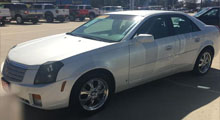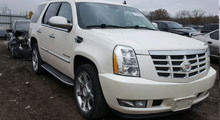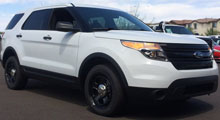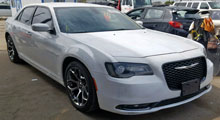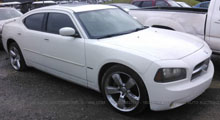Affording An RV
Whether you dream of RVing full-time, or as an occasional getaway, the main obstacle for the majority of would-be RVers is the cost. However, while there's no escaping the fact that an RV is a significant purchase, through careful planning and budgeting, the dream can become a reality.

Be Realistic
First and foremost, you have to be realistic, both in planning your budget and in your choice of RV. With more types of RV available than ever before, there really is one out there for every style and budget. However, when you're just starting out, how do you know what to go for?
Even if you've got your heart set on a particular type and model, the first step is to figure out how much you can afford or afford to borrow for your RV itself. Then factor in some approximate running costs such as gas, insurance, maintenance, future repairs and various spending on-the-road expenses. These can vary a lot from RV to RV, so you'll have to do plenty of research. It's also worth considering both trailers and motorized RVs, especially if your current vehicle could tow a trailer. This may save you a lot, not only in initial outlay, but also with decreased depreciation and repair costs.
Another recommendation is to hire an RV for a short trip. There are hundreds of thousands for hire online, from both private owners and companies. Once you've narrowed down your search to a particular make or model, you could then hire that particular type. This gives you a chance to see if you really do need all that space offered by a class A, or if you'd have enough space in a class B and to find out how they drive, experience first-hand setting up and above all asking other owners on site what their recommendations are. This will help you to set your priorities and to avoid spending on features that you might not actually need.
While it's true that purchasing an RV involves a substantial amount of money, it can also save you money on vacations, you will no longer need to book plane tickets, pay for hotel rooms, you can cook for yourself when you want to, stay an extra night when needed and generally enjoy a home-from-home experience. So, if you're a family or someone who travels frequently, you could offset part of your RV costs with the savings you would make by RVing itself.
Traveling on a Budget
Once you've purchased your RV, there are numerous costs that go with it. Some can't be avoided, such as insurance, however RVing, both full-time and occasional, doesn't have to be expensive. Instead of rushing out to buy what you perceive as the latest must-have gadgets, take your time to get to find out your traveling style. If you prefer staying at a luxurious resort with full hookups, spa and golf course, do you really need that extensive solar panel set up? Likewise, if you prefer staying in minimalist RV parks or boondocking, you might need to kit out your RV to space out your trips back to civilization.
There are plenty of ways to do RVing on a budget. Once you've sorted out your yearly bills, maintenance, repairs, insurance and so on, you really are free to choose how much or how little to spend. Newer RVs are often lighter and more economical, however, you can save money in any RV by simply reducing speed and taking it easy. If money's a little tight, try visiting areas near home for short trips. This can be a great way to discover your local area and have an almost cost-free vacation.
If you prefer some luxuries, at least a partial hookup, there are plenty of economically priced RV parks, you just need to check out the prices in advance. This can save you a lot of money, generally the more facilities offered, the more expensive the price, so if you're not really interested in the golf course or the spa and are looking to spend some peaceful downtime, you can save without compromising your stay. Make sure you do your research before you reach your destination.
Another way to save money when RVing is to pack lighter. If you plan well you can stock up only when you're going to need it, rather than driving to a park with your tanks full, you could fill up there for the onward drive. It's also more cost effective to stay in one place for longer. If you have the option to travel whenever you want to, avoiding the hottest and coldest periods will save you a/c and heating expenses, while traveling off-season could save you money on park fees and other expenses that are generally inflated for the busy tourist season. Less queues, more space and a chance to experience the area on a more personal level.
If you'd like to spend more time traveling than you can afford to, or if you're thinking of RVing full-time, why not consider working, either seasonally at RV parks and campsites or by working remotely online. There are many more remote jobs available than in the past and internet and cell phone coverage are increasing by the day. Another option available to occasional RVers is to let out your RV when you're not using it. In theory, this could pay for your RV and travel costs. This option is well worth checking out, prices vary according to your area and model, but you could easily make $10,000-$20,000 per year through bookings.
Your RV provides you with a home-from-home experience against a changing backdrop. By cooking your own meals and enjoying your RV and the surrounding environment you don't need to spend a lot of money on eating and entertainment. Buy local produce and have a BBQ, spend the evening chatting with neighbouring RVers, enjoy the great outdoors. The RV lifestyle doesn't have to be expensive and when it comes to enjoying life, sometimes less turns out to be more.
